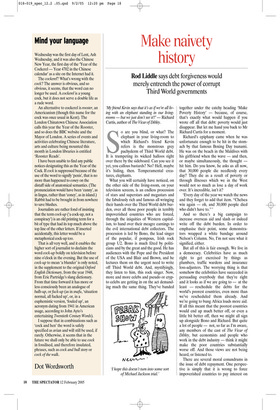Mind your language
Wednesday was the first day of Lent, Ash Wednesday, and it was also the Chinese New Year, the first day of the ‘Year of the Cockerel — Year 4702 in the Chinese calendar’ as a site on the Internet had it.
The cockerel? What’s wrong with the cock? The answer is obvious, and so obvious, it seems, that the word can no longer be used. A cockerel is a young cock, but it does not serve a double life as a rude word.
An alternative to cockerel is rooster, an Americanism (though this name for the cock was once usual in Kent). The London Chinatown Chinese Association calls this year the Year of the Rooster, and so does the BBC website and the Mayor of London. A series of events and activities celebrating Chinese literature, arts and culture being mounted this month in London libraries is entitled ‘Rooster Reads’.
I have been unable to find any public notices designating this as the Year of the Cock. If cock is suppressed because of the use of the word to signify ‘penis’, that is no more than happened to coney on the distaff side of anatomical semantics. (The pronunciation would have been ‘cunny’, as in lingus, rather than ‘coney’, as in island.) Rabbit had to be brought in from nowhere to save blushes.
Journalists are rather fond of insisting that the term cock-up (‘a cock-up, not a conspiracy’) is an old printing term for a bit of type that had its top much above the top line of the other letters. If inserted accidentally, this letter would be a metaphorical cock-up too.
That is all very well, and it enables the higher sort of journalist to declaim the word cock-up boldly on television before nine o’clock in the evening. But the use of cock-up to mean ‘a blunder’ is only noted, in the supplement to the original Oxford English Dictionary, from the year 1948, from Eric Partridge’s slang dictionary. From that time forward it has more or less consciously been an analogue of balls-up, or fuck-up (as in snafu, ‘situation normal, all fucked up’, or, in a euphemistic version, ‘fouled up’, an acronym dating from 1941 in American usage, according to John Ayto’s entertaining Twentieth Century Words).
I suppose that in combinations such as ‘cock and hen’ the word is safely specified as avian and will still be used, if rarely. Otherwise, it seems that in the future we shall only be able to use cock in fossilised, and therefore insulated, phrases, such as cock and bull story or cock of the walk.













































 Previous page
Previous page